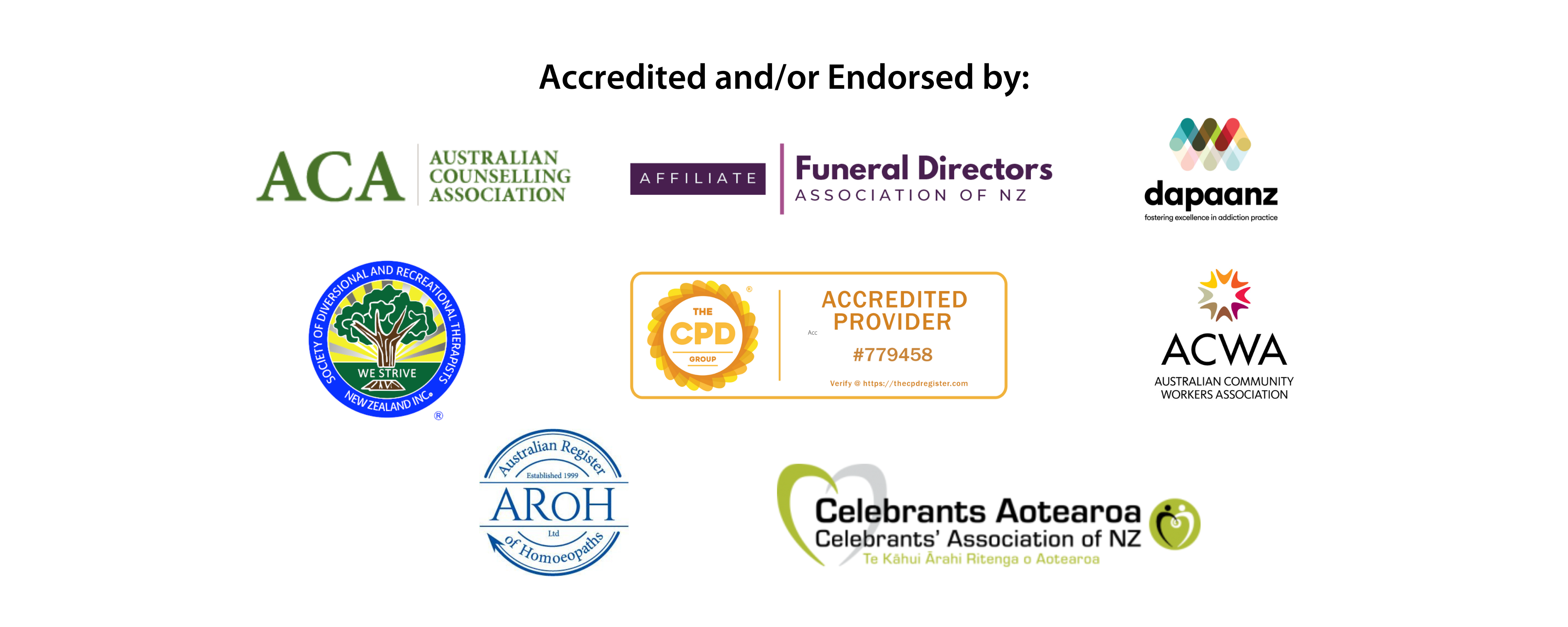*Please note the time for this webinar has been shifted from the originally scheduled time. It will now run 12-2pm.*
Who should attend this webinar?
Anyone who works in a professional care role or supports people through all forms of loss and grief. Our content is applicable to a wide variety of professions including counsellors, social workers, teachers, emergency response teams, medical, corrections, mental health, hospice, volunteers, caregivers and more.
Overview
Family violence is often misunderstood as a series of isolated incidents, but in reality, it follows deeply ingrained patterns of coercive control, entrapment, and harm.
This webinar will examine coercive control as a pervasive yet often unseen dynamic in family violence, shaping victims’ experiences through patterns of harm, that are both physically and non-physically perpetrated, and that result in primary victim entrapment. We will also look at the barriers that prevent victims from seeking support, the impact of systemic and sectoral discrimination and marginalisation, and the unintended ways systems can contribute to keeping people trapped in abuse. Importantly, we will highlight the resilience and strength of victims, challenging outdated assumptions and shifting towards a more informed, non-judgemental approach to support.
Whether you work directly with family violence or not, this webinar will enhance your ability to recognise risk, ask the right questions, and better support those who may be experiencing coercive control. By broadening our understanding of family violence beyond crisis intervention, we can play a vital role in early identification and intervention—helping to uncover where family violence may be occurring or likely to occur before it escalates.
Key learning points
- Understanding language and terminology around family violence
- The episodic nature of family violence and patterns of harm – exploring patterns of abuse to better understand whānau experiences of family violence
- Coercive control as an overarching intentional tactic of family violence
- Recognising entrapment and Multifaceted Entrapment
- The Practitioner-Victim Insight Concept (PVIC)
- Diverse communities: barriers, recognising risk and appropriately informed response
- The link to mental health and drug and alcohol issues as both contributor and consequence
Webinar registration details
- Access to the live two-hour webinar
- Access to the webinar recording for 30 days
- Access to a downloadable PDF handout
- Certificate of accomplishment issued on completion of a short quiz for CPD/OPD points
- NOTE: Webinar times are shown in NZST or NZDT. If you're joining us from Australia, please use a time-zone converter to see the live time in your state.
Certificate of accomplishment
We can provide a certificate of accomplishment for all our training courses. The requirement for receiving a certificate to confirm professional development is as follows:
- You must view a minimum of 80% of a live-presented webinar workshop or
- You must view a minimum of 80% of a recorded webinar workshop
- You must complete a short quiz on the webinar content
CPD points/credits
We are accredited to provide points/credits to the following organisations, educational institutes, and associations:
New Zealand
FDANZ
NZEA
NZIFH
Australia
AROH
Our training is endorsed or recommended by the following organisations, educational institutes, and associations:
New Zealand
NZAC
DAPAANZ
CANZ
NZSDRT
The CPD Group
Australia
ACWA
ACA (Australian Counselling Association)
To receive your CPD points/credits, you will need to receive a certificate of accomplishment which you can then provide to your relevant institution.
 less
less


